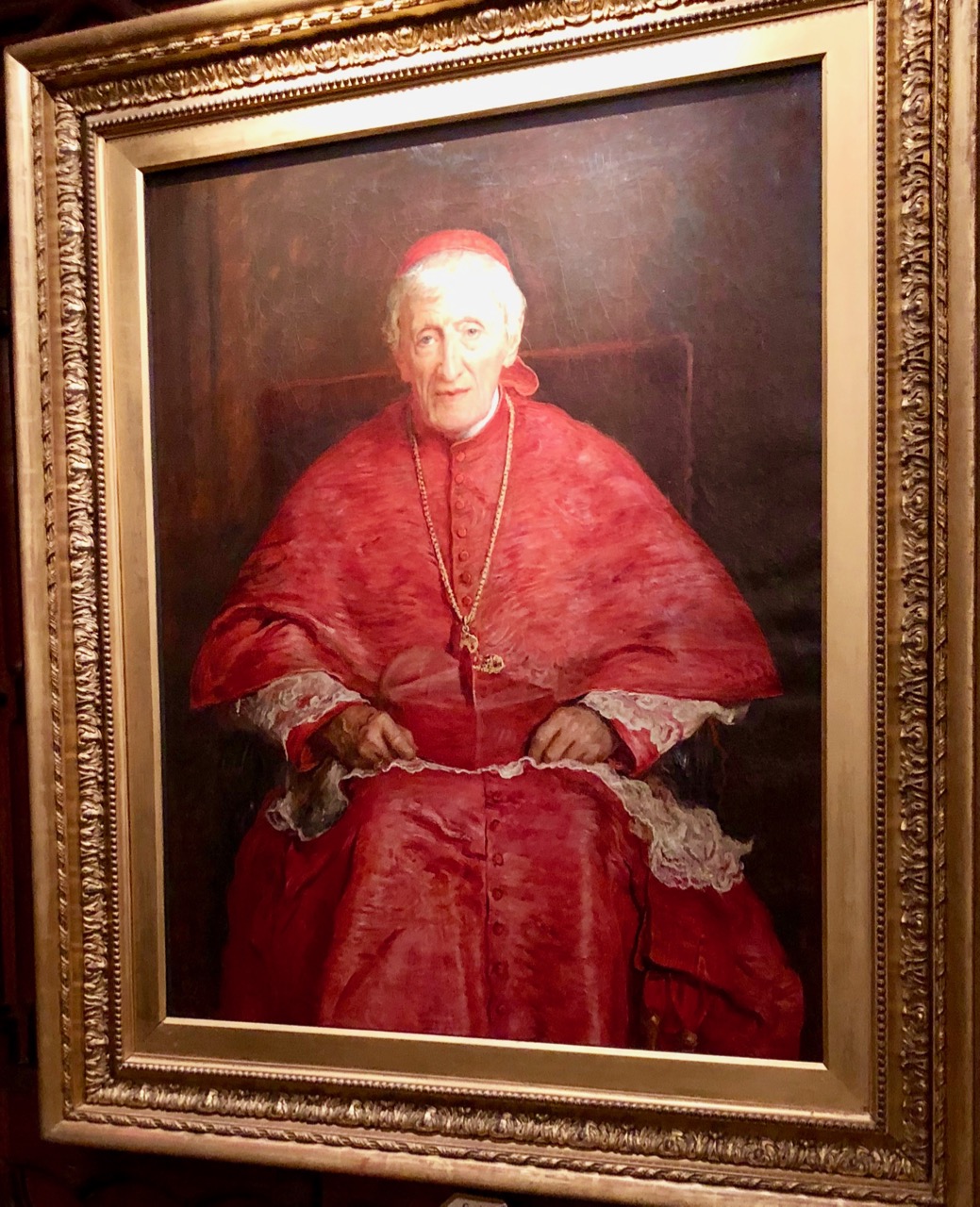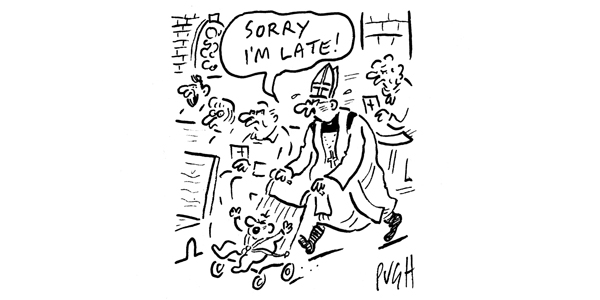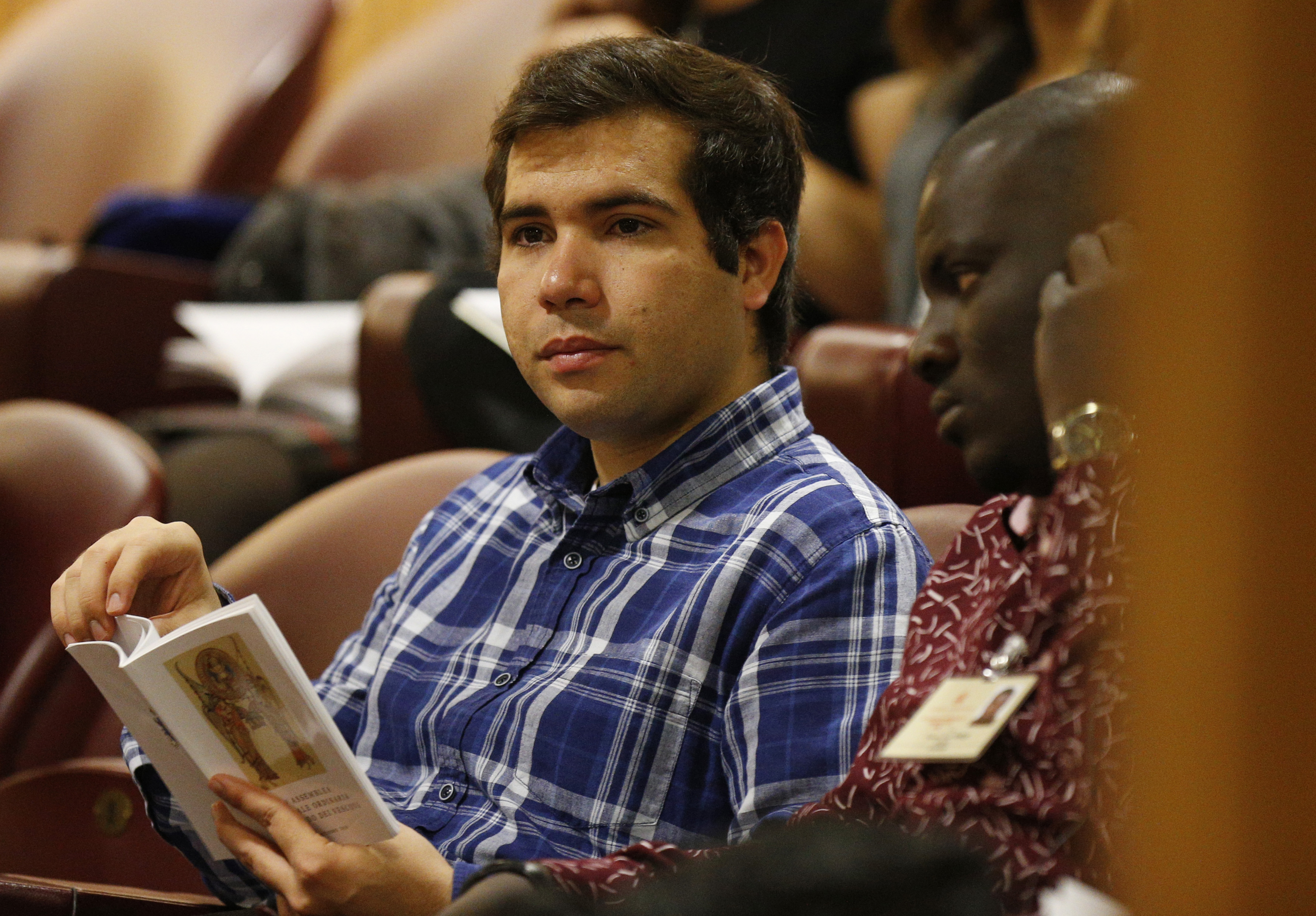The Australian Catholic Students Association has written to the Synod Fathers and all the participants in the Synod of Bishops on young people, petitioning them radically to alter their approach to the discernment of the needs of young people.
The approach outlined in the first working document of the Synod on Young People, Faith and Vocational Discernment, that runs until 28 October, emphasises that young people should be met “where they are” and listened to, taking account of the highly secular environment in which so many – especially in the western world – have to find their way. Synod guidelines emphasise the importance of conscience in guiding their moral decisions in the complex situations they encounter.
In the letter the signatories, the President of ACSA, Christopher Wilks, and more than 200 tertiary students and young alumni of ACSA, drawn from 28 tertiary institutions Australia, firmly suggest that this is a mistaken approach. Cardinal Newman by Sir John Everett Millais, 1st Bt
Cardinal Newman by Sir John Everett Millais, 1st Bt
oil on canvas, 1881, at Arundel Castle. Photo by James Roberts
On the question of conscience, the students and alumni make special reference to Blessed John Henry Newman.
It is because of Newman that the Catechism of the Catholic Church describes conscience as “the aboriginal Vicar of Christ”, they admit. But Newman saw the risk that “conscience” could be interpreted as any man’s “prerogative to be his own master in all things”, they recall. In a riposte to some of the thinking about the primacy of conscience expressed in elements of the Synod, they point out: “Without the Church and everything she offers – divine revelation, tradition, community, and reason itself – conscience has no substance. We need a reliable moral compass.”
For this, they say – in a challenge to the perceived overall direction of travel of the synod – young people need to be well-formed in the truth. “We cannot shape the Church when we are not formed. Formless minds will manifest a shapeless Church, constantly evading the truth.This formation takes a lifetime, a lifetime the young cannot claim.”
Many synod participants, especially some of the more prominent clerical ones, have suggested that such a formative role led by the Church is off-putting to young people.
This is wrongheaded, say the students: “How could we ever presume to shape the Church, which as the Mystical Body of Christ contains within it billions of lifetimes of conversion, the hopes and prayers of all the faithful departed, the wisdom and holiness of the entire Communion of Saints, and the conviction and bravery of an ever-growing army of martyrs?
“Like past generations, today’s young will only shape the church when we are ourselves formed,” they state. “Then we will, God willing, take shape as Christ’s hands, eyes, feet and heart.”
Turning to moral issues, they point out: “We can’t hope to take shape amidst confusion over issues such as contraception, sexuality, communion for divorcees and non-Catholics, married priests and female ordination.”
They then go on, in probably the most damning allegation of the whole petition, to accuse “senior prelates” of wilfully creating confusion by the use of deliberately ambiguous statements. Confusion on the part of the young, they say, is “borne from senior prelates purposefully employing ambiguous language when addressing such issues, even in the face of Christ’s teachings, the Church Fathers and the clear dogma of the Church”.
In an echo of a criticism often made of many of the pronouncements currently emanating from Rome, they charge: “Such ambiguity is neither charitable nor desired by the youth and needs to be addressed by this Synod.”
Affirming the relevance and importance of “rules”, they even appear to take direct aim at Pope Francis’ repeated rejection of “rigidity”on the part of Christians. “Some of the Synod Fathers wish to avoid a Church of ‘rules’ which fail to encourage a personal relationship with Jesus Christ. However these rules lead us to Christ, they always have. We need the Church to explain why and how this is. When the Church eschews the truth for policy-speak, young people are left with only superficial banalities to express their beliefs.”
Turning Pope Francis’ frequent rejection of “rigidity”on its head, they suggest that that rejection of so-called rigidity is in itself a form of rigidity. “Deliberately unclear words are, ironically, relied on and repeated with rigidity. The Church should not discourage young people following its rules in love, nor its priests from teaching them,” they say.
Moving on from this appeal for clarity in language, the students turn to the question of liturgy and devotion, urging a proper emphasis on the sacred: “We pray for an increase in practices which help satisfy the sacramental needs of our bodies and souls – pilgrimages, confession, devotions, adoration, sacred art, music and architecture. The world can be an ugly place, and the outward beauty of our churches should be rays of light in our communities, particularly in the lives of the poor.”
They point out how there are lessons to be learned from public intellectual Jordan Peterson, who has told young people to “pick up your cross”, if they are to find meaning in their lives. Peterson’s insistence on the personal development that can emerge from understanding the necessity of suffering, is well understood by young people, they say.
“In their hearts, even people who have little faith somehow know that this image, this instrument, the cross, gives their suffering meaning,” they explain, saying that this is where the Church should come in.
“Peterson and those like him have a ceiling. They know some of the truth intuitively, but they do not offer the fullness of truth because they do not have faith,” they say. “Only the Church can provide real meaning to our world. The Synod Fathers need to accept this mission. The young want the truth, unambiguously.”
The students end with an inssistence on a full appreciation of the Mass. “We want the Mass to be worthy of the profound claim it is making – that the same Jesus Christ of the Gospel descends to the altar body, blood, soul and divinity, in every instance,” they say, regretting that so many of the debates over what is the best “tone” and what kind of celebration is most “welcoming” make the Mass “look like a battlefield between the faithful, when it should only proclaim the victory of Christ over death, time and sin.”
They write: “In bringing the Mass down to our level of comfort, we turn a profound claim physically manifested in a glimpse of heaven, into a weird claim which people struggle to take seriously. The Synod Fathers should consider encouraging the use of the Divine Office more widely. This would complement the increasingly popular and fruitful practice of Eucharistic adoration in parishes and university chaplaincies.”
Finally they stress the importance of Mary as a “model to all of God’s people, no less for the young”. Scripture makes use of the figure of a garden when it would speak of heaven and its blessed inhabitants, they point out, going on to ask: “How can we become flowers in the Paradise of God, like Mary?”
With a concluding swipe at one of the Synod’s buzzwords, and an appeal to the Church to do what it is supposed to do, they say the young do not only want “accompaniment” in the contemporary wasteland. They want to strive for Paradise, and they do this “by being born again in Baptism, nurtured by the Sacraments and sheltered by the Truth in the Mystical Body of Christ, the Church”.



 Loading ...
Loading ...